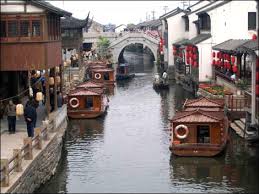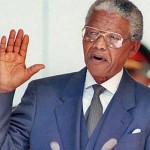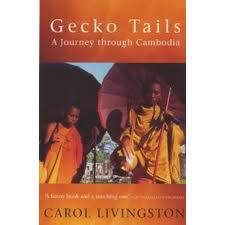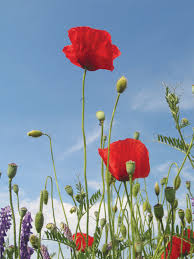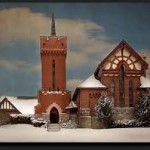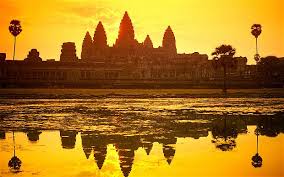This is the second part of an account of a day in the “Venice of the East”, Suzhou. (Read the first here.) I left off at the point where we were getting off the tourist boat, with me thinking we were nearly done but with the worst to come. Toward the end (spoiler alert!), we take a slight detour between my ears. I hope it’s a pleasant place to visit, though you wouldn’t want to live there.
“There’s a silk museum? We’re going there now? I thought –“
We disembarked and climbed up the banks, and there again were the street vendors, and buses lined up to enter through the same narrow gates that we were. (Did I mention that the aggressively employed air horns on Chinese trucks and buses make me vaguely homicidal? I don’t think I mentioned this.) The ultra-amplified guide brought up the rear, and now even I understand his message: kuai yi dianr. (“Hurry up!”) Even if my Chinese hadn’t been up to that minimal speed, I’d have understood. Move along, folks. There’s stuff to buy, commissions to be earned. That’s where bemusement began to turn to anger. The museum was chintzy, but could’ve been diverting, at least briefly; I don’t know much about how we get from tree worms to gorgeous outfits and bedding. However, the museum was a false front, and once the guide had hurried us into the duvets-to-go area, I’d had enough. I signalled my son toward the exit. He didn’t resist.
“Dad, why are we taking an escalator up to the exit? We came in on the main floor.” Right. I have a bad feeling about this. We got to the top. Oh, no.
Oh, yes. Silk shirts. Silk bedding. Silk pyjamas. Silk ties. Silk showrooms, one after the other after the one after the first.

